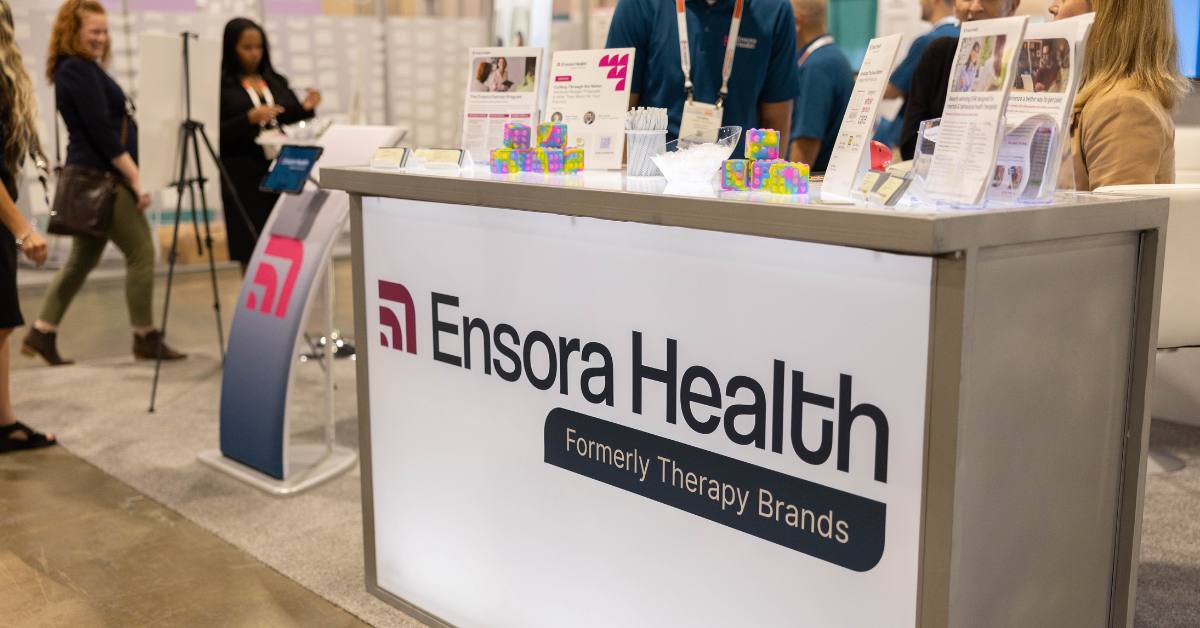What we learned at ABAI 2025: Takeaways from the field’s most important conversations


Marissa Coughlin Verbanic is a Senior Product Marketing Manager at Ensora Health, supporting ABA and rehab therapy solutions. A healthcare tech enthusiast, she’s passionate about bettering the healthcare community through smarter, more connected technology. Excited to attend ABAI for the first time, Marissa shares below the invaluable insights she gained from some of the industry’s most meaningful conversations.
When I headed to ABAI this year, I wasn’t entirely sure what to expect. It was my first time attending, my first time representing Ensora Health, and my first look at one of the biggest events in ABA. The one thing I did know? I wanted to connect with as many people as possible and listen closely to their insights about where this field is headed.
For those unfamiliar, ABAI stands for the Association for Behavior Analysis International, and their annual convention is one of the most attended events in ABA. This year’s convention took place in Washington, D.C., bringing together researchers, clinicians, students, and industry leaders to collaborate and push the field forward. What I quickly realized is that ABAI isn’t just a place to talk about best practices or new technology. It’s also a chance to reflect on where ABA has been, where it’s going, and how we can all do better to support both the individuals receiving care and the clinicians providing it.
For Ensora Health, this event matters deeply. We’re not just a software company. Our goal is to make clinicians’ lives easier so they can focus on what they do best – helping their clients thrive. Events like ABAI help us stay connected to their experiences, challenges, and goals. Over the course of the conference, I had the chance to meet with so many inspiring people, from seasoned professionals to students just starting out. Each conversation reinforced how much this field values collaboration, innovation, and inclusion.
However, three key themes stood out during my time at ABAI: Inclusion and advocacy. The role of AI in training and support. And how we, as a field, can redefine what true support means for clinicians.
Self-advocacy is not optional, it’s foundational
Self-advocacy is about being able to speak up for yourself, share your perspective, and have your voice heard. For clients, it’s often a skill they learn through therapy. But at ABAI, it was clear how important self-advocacy is for professionals in this field too.
Clinicians shared how much they value workplaces where they feel safe and supported standing up for what they need. That could be mentorship, reasonable workloads, or simply an environment where their voices carry weight. I also heard a lot about the importance of uplifting neurodiverse perspectives—not as an afterthought, but as a core part of how we build better systems for care and operations. Inclusion can’t be a “nice to have”; it needs to be a foundational part of how things work right from the start.
I couldn’t help but think of Ensora’s role in all this. When clinicians have tools that reduce the time they spend on tedious tasks like chasing broken schedules or fixing billing mistakes, they’re able to refocus that time towards their own advocacy and well-being, not just their clients’. They’re granted the space to advocate for better systems, more inclusive workspaces, and the changes they need to grow.
It also reinforced why we need to keep listening closely to clinicians, admins, and students as they advocate for what they need. Those perspectives push us forward, helping us evolve our software to better meet the needs of the people it’s built for. It’s why I’m so excited about initiatives like our clinical advisory board. This was born out of conversations just like the ones I had at ABAI, and it’s a space where we can partner with clinicians on what’s next.
AI is here, and it’s changing the way we train and support
AI was one of the hottest topics at ABAI, and for good reason. What I appreciated most about the conversations I heard was how grounded they were. Rather than focusing on the buzz, people were asking important questions about how AI could address real problems in a clinician’s day-to-day life.
For example, AI has started to help with things like improving documentation accuracy, reducing repetitive admin tasks, and making RBT training more consistent. All of this has the potential to lower stress and even help with burnout, which are persistent issues in the field.
But there was another constant in these discussions: a focus on using AI responsibly. For AI to really work in ABA, it has to be transparent, thoughtfully implemented, and guided by clinicians—not the software itself. Meaning clinicians should always oversee how these tools are used, ensuring they align with practical needs and ethical standards. Trust matters, and the tools need to support, not replace, the expertise therapists bring to their work.
At Ensora Health, we’re currently developing AI solutions with a goal of going beyond convenience. We’re exploring the best ways to embed these into our ABA solutions, tackling major headache areas such as tedious administrative tasks. But we’re equally committed to making sure we get it right. Thoughtful development takes time. That means ensuring these tools empower clinicians without rushing or creating unnecessary risks. Transparency, oversight, and trust will always be part of how we integrate AI into what we do.
What support really means in ABA today
One of the questions I heard most often at ABAI was, “What do clinicians really need?”
While there’s no one-size-fits-all answer, the common thread was clear. Support isn’t about doing everything. It’s about doing the right things in the simplest, most effective way.
Many frustrations clinicians shared come from systems that weren’t making their jobs any easier. Whether it’s outdated documentation tools that take too long, scheduling systems with too many moving parts, or struggles to scale without losing quality of care, it’s clear that better support means taking the friction out of the process.
At Ensora Health, this is something we think about a lot. Our ABA Suite isn’t about throwing everything into one toolbox. It’s about creating tools that make a difference in the areas that matter most. Managing billing. Simplifying documentation. Easing scheduling. Streamlining data collection. When we remove these barriers, RBTs and BCBAs have more freedom to focus on the part of their jobs that means the most to them: their clients and their teams.
But perhaps most importantly, supporting clinicians means collaboration. Professionals in this field already know the answers to many of their challenges, and it’s our job to listen and incorporate their insights into what we build. Innovation doesn’t happen in a boardroom. It happens alongside the people navigating these challenges every day.
Looking ahead with intention
Attending ABAI gave me a lot to think about. Beyond all the tech and the tools, it underscored a belief that everyone at Ensora shares: To make progress in our field, we have to stay in the conversation. That means not just showcasing what we’re building but, more importantly, listening.
It was such a privilege to connect with everyone we spoke to—from seasoned customers to up-and-coming students ready to bring fresh energy to our industry. Those conversations left me feeling incredibly optimistic. People are passionate about where this field is going, and it’s inspiring to see how much thought and care they bring to building something better.
At Ensora Health, we’re proud to be part of those conversations. We remain dedicated to co-creating tools with clinicians, not just for them. Because innovation, when done right, doesn’t complicate care; it makes it more sustainable, inclusive, and client centered. It’s a responsibility we take seriously, and it’s one I’m excited to keep working toward.






